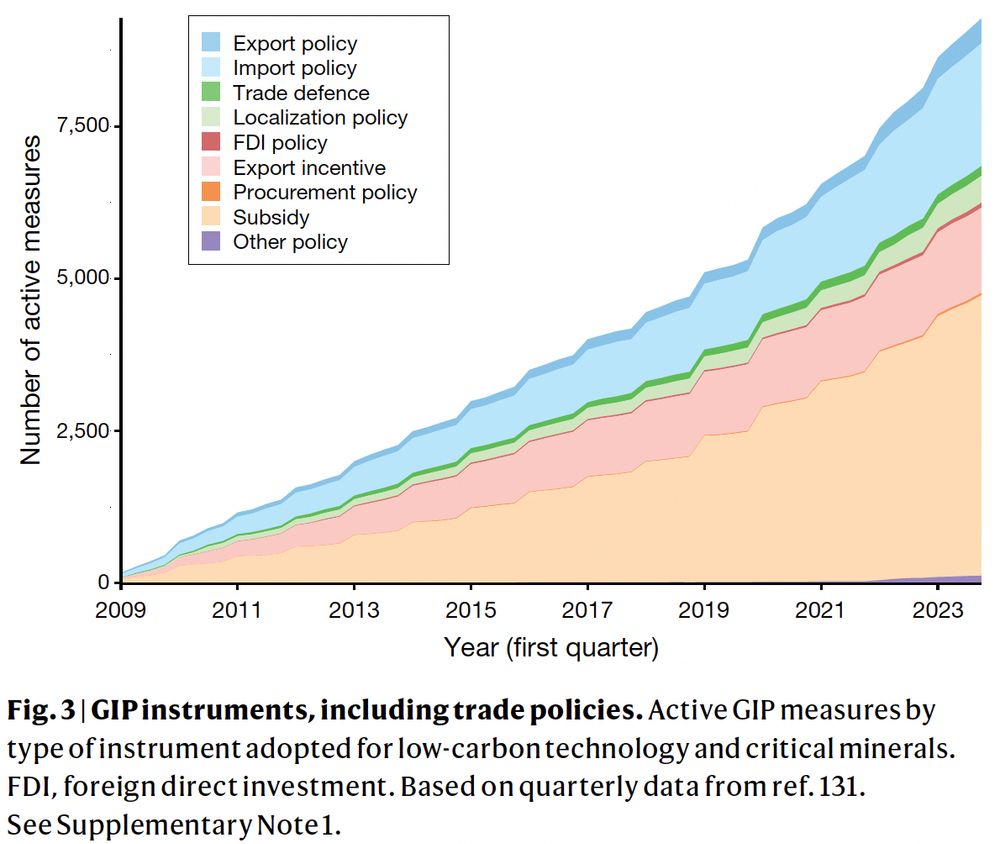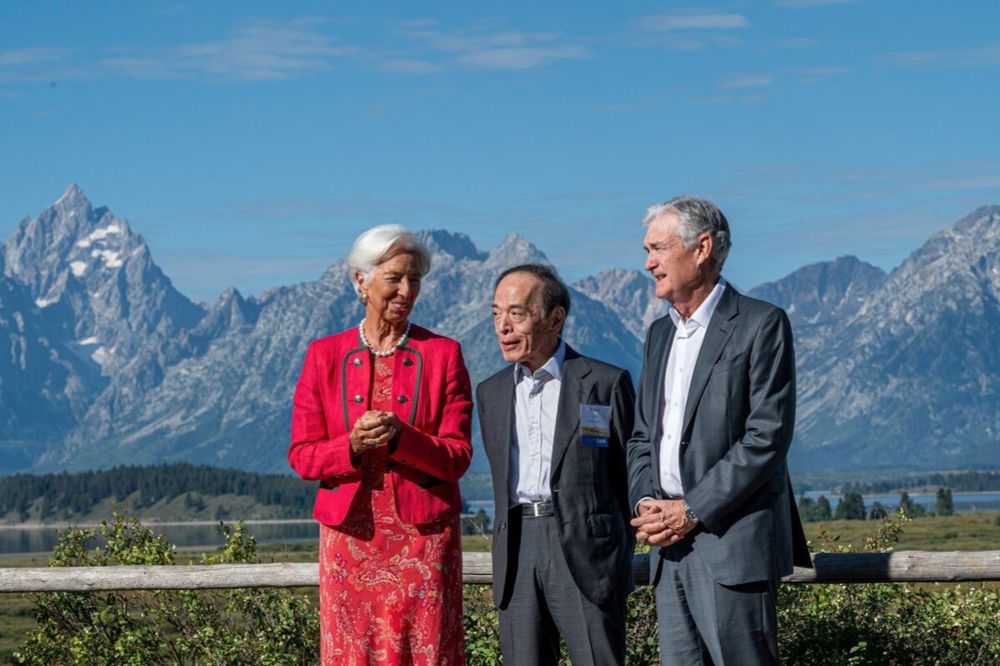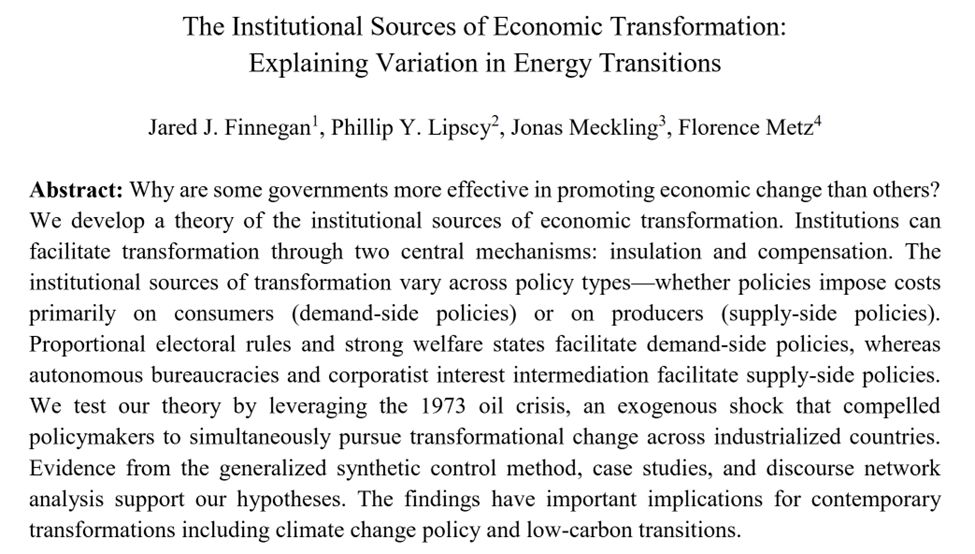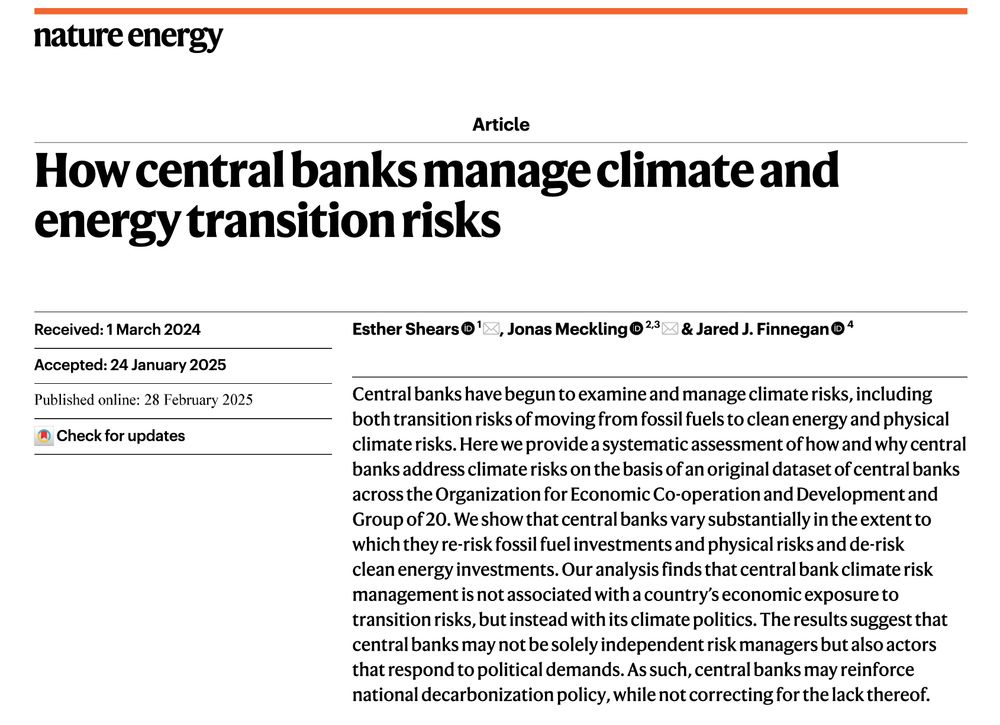Jonas Meckling
@jonasmeckling.bsky.social
390 followers
560 following
18 posts
Professor, UC Berkeley | Climate Fellow, Harvard Business School
climate and clean energy policy | www.jonasmeckling.com
Posts
Media
Videos
Starter Packs
Pinned
Reposted by Jonas Meckling
Reposted by Jonas Meckling
Jonas Meckling
@jonasmeckling.bsky.social
· May 28
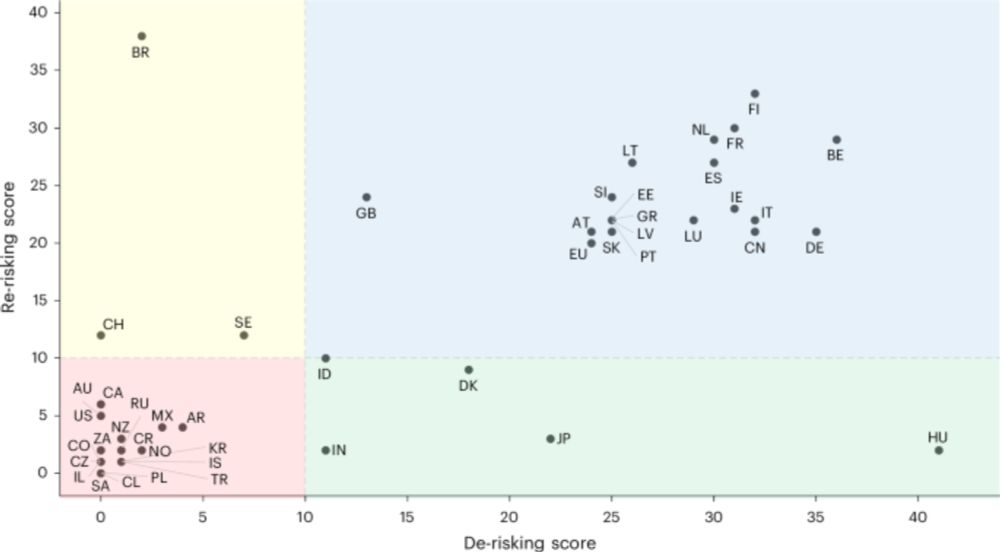
How central banks manage climate and energy transition risks - Nature Energy
Central banks vary substantially in the extent to which they re-risk stranded asset and physical climate risks and de-risk clean energy investments. Their actions are associated with climate politics ...
www.nature.com
Reposted by Jonas Meckling






